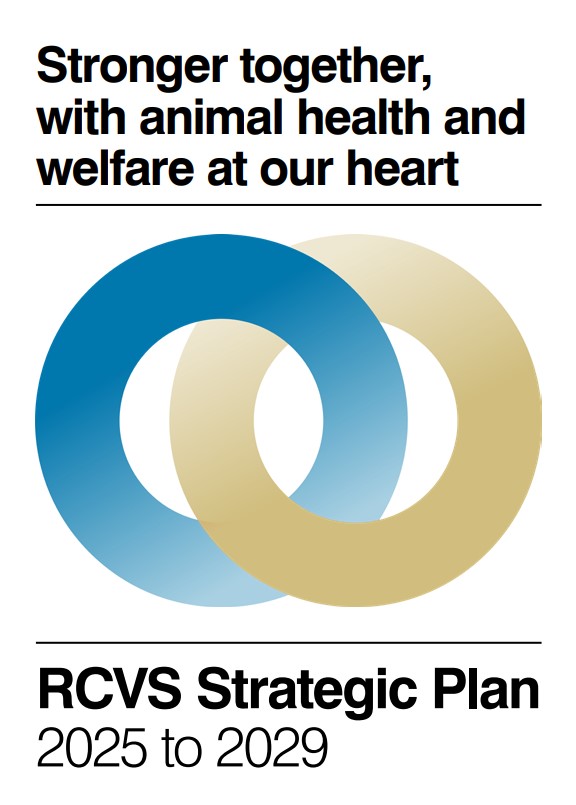-
-
- Standards Committee
- Advancement of the Professions Committee
- Audit and Risk Committee
- Education Committee
- Disciplinary Committee
- Charter Case Committee
- Preliminary Investigation Committee and Disciplinary Committee Liaison Committee
- Registration Committee
- Preliminary Investigation Committee
- Paper classification: some definitions
-
-
-
-
- About extra-mural studies (EMS)
- EMS requirements
- Information for vet students
- Information for EMS providers
- Information for vet schools
- Temporary EMS requirements
- Practice by students - regulations
- Health and safety on EMS placements
- EMS contacts and further guidance
- Extra-mural studies fit for the future
-
-
- Code of Professional Conduct for Veterinary Surgeons
- Code of Professional Conduct for Veterinary Nurses
- Contact the Advice Team
- XL Bully dog ban
- 'Under care' - guidance
- Advice on Schedule 3
- Controlled Drugs Guidance – A to Z
- Dealing with Difficult Situations webinar recordings
- FAQs – Common medicines pitfalls
- FAQs – Routine veterinary practice and clinical veterinary research
- FAQs – Advertising of practice names
- GDPR – RCVS information and Q&As
-
- Accrediting veterinary degrees
- Accrediting veterinary nursing qualifications
- Reasonable adjustments for student vets
- Health and disability in veterinary medicine study and practice
- The role of the veterinary schools and the RCVS
- Reasonable adjustments and the Equality Act 2010
- Reasonable adjustments and Day One Competences
- Examples of reasonable adjustments for vet students
- Annex
- Reasonable adjustments for student vets - summary
- Reasonable adjustments for student veterinary nurses
- Health and disability in veterinary nurse education and training
- Reasonable adjustments for students and the UK disability discrimination legislation
- Educational assessment of veterinary nurses
- Roles of key stakeholders in the application of reasonable adjustments
- Examples of reasonable adjustments for vet nurse students
- Embracing reasonable adjustments for student vet nurses - summary
- External review of the RCVS by ENQA
- Requirements for remote and online student assessments
RCVS shows commitment to collaboration with new strategic plan ‘Stronger together’
21 May 2025
We have today [Wednesday 21 May 2025] published our new five-year Strategic Plan, titled Stronger together, with animal health and welfare at our heart, focusing on how the College will work with and for key stakeholder groups.
The 2025 to 2029 plan sets out, among other things, our four updated values – compassion, collaboration, clarity and courage – as well as its four strategic ambitions, each focused on one of its stakeholder groups.
 These are:
These are:
A. Stronger together with veterinary professionals: through this ambition we will help veterinary professionals meet high standards and champion accessible, team-based veterinary care, delivered in settings that support professional autonomy and leadership. Aims under this ambition include reviewing the Code of Professional Conduct and supporting guidance, achieving new veterinary legislation, and ensuring our educational standards and career pathways meet the diverse needs of society and the professions.
B. Stronger together with animal owners and keepers: through this ambition we will support animal health and welfare and public health by enabling access to veterinary care informed by the needs of consumers and service users. Under this ambition we aim to support and inform service users to get the best from veterinary professionals, with increased transparency, agency and choice; will consider ways in which those accessing veterinary care could be better supported; and, work to improve services and communications to animal owners and keepers based on feedback.
C. Stronger together with society at large: through this ambition we will champion the role that veterinary professionals play in One Health and public health, take a leadership role on environmental sustainability and biodiversity, and continue to look at how it can play a role in the global veterinary professions. Aims under this ambition include leading the conversation on challenging issues, such as the cost of veterinary care; building enthusiasm for veterinary work in the minds of the next generation of potential professionals; and, ensuring veterinary professionals responsible for public health are well supported with robust standards and safeguards.
D. Stronger together with our staff team and governance: through this ambition the RCVS will attract and retain the diversity of talent and skills to deliver what’s needed now and anticipate what might be next and build a culture that allows people to thrive. Aims under this ambition include developing an infrastructure for success, including the new RCVS headquarters, and underpinning structures for finance, communications and digital; creating a working culture with sound values and supportive management; and, horizon scanning, and bringing the outside in, via research, collaboration and experience.
 Lizzie Lockett (pictured), RCVS Chief Executive Officer, said: “Thank you to all those who contributed their time, effort and ideas to the process – from our Council, VN Council and committee members, to our Public Advisory Group, our staff members here at the College and also from the many veterinary associations and other organisations who were involved.
Lizzie Lockett (pictured), RCVS Chief Executive Officer, said: “Thank you to all those who contributed their time, effort and ideas to the process – from our Council, VN Council and committee members, to our Public Advisory Group, our staff members here at the College and also from the many veterinary associations and other organisations who were involved.
“The overall theme of the plan recognises that there are many other individuals and organisations that have a stake in our mission to inspire confidence in veterinary care and protect the public interest by ensuring animal health and welfare, and public health, are advanced through thriving world-class veterinary professions.
“This is where the ‘stronger together’ comes in, recognising that, in our role as a royal college that regulates, we are very well placed to bring people and organisations together to meet our common purpose of improved animal health and welfare and public health in a collaborative, proactive way.”
The Strategic Plan is available to view on our website and can also be downloaded in accessible PDF format from our Publications page.